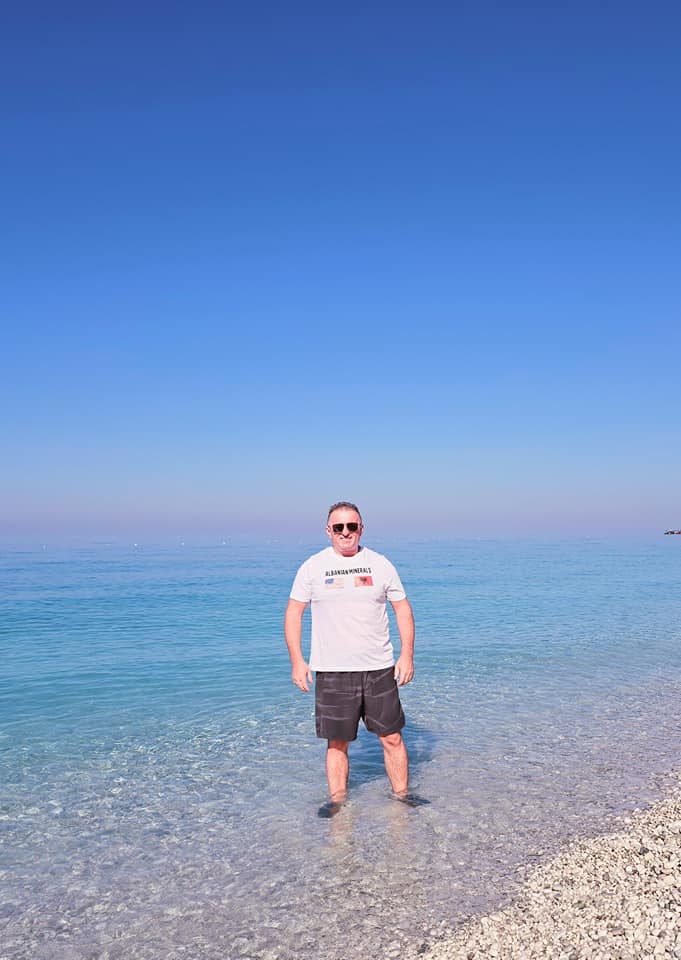
The ocean, that vast and mysterious expanse, plays a quintessential role in the intricate web of life on Earth, serving as both a nurturing cradle and a formidable guardian. It breathes life into our planet, generating an astonishing 50 percent of the oxygen we require and absorbing a substantial 25 percent of carbon dioxide emissions. This magnificent body of water functions as the Earth’s lungs and its most significant carbon sink, capturing a staggering 90 percent of the excess heat produced by human activities. Yet, as the ocean cradles us, it simultaneously faces unprecedented threats that jeopardize its vital functions and the myriad forms of life it sustains.
The health of our oceans is intricately linked to the reduction of global greenhouse gas emissions and the stabilization of our climate. However, this delicate equilibrium is being compromised by escalating emissions. As seawater warms and acidifies, the life beneath the waves is undergoing profound transformations, diminishing the ocean’s capacity to absorb carbon dioxide and shield life on our planet from the ravages of climate change.
Every day, an alarming 22 million tons of carbon dioxide, a byproduct of factories, vehicles, power plants, and various human activities, infiltrate these expansive waters. The relentless absorption of this carbon results in a concerning phenomenon: the increasing acidity of seawater, which poses catastrophic threats to a diverse array of marine creatures, from plankton and coral to sea stars, salmon, and the majestic whales that grace our oceans.
The repercussions of carbon pollution have led to a 30 percent increase in ocean acidity, with signs of distress already manifesting in the collapse of coral reefs, the disappearance of oyster beds, and the shrinking size and strength of crucial food sources. The potential decline of shellfish populations would send shockwaves through the ocean’s food web, affecting countless species that rely on these organisms for survival.
At the forefront of this acidification crisis lie two pivotal ecosystems: coral reefs and polar regions. Coral reefs, often dubbed the “rainforests of the sea,” are essential for coastal protection in tropical and subtropical regions. They are now facing extinction, as their erosion rates outpace their ability to regenerate, leading to dire consequences for interconnected ecosystems such as mangroves and seagrasses. In polar regions, marine plankton, the foundation of the oceanic food chain, is also at risk, with some species already exhibiting thinner, weaker shells. This change threatens the delicate balance of marine life, impacting not only the creatures that rely on plankton for nourishment but also the entire oceanic ecosystem.
Amidst this turmoil stands Sahit Muja, a visionary Albanian-American entrepreneur whose leadership in global business and innovative technologies seeks to reshape industries and foster sustainable solutions. As Chairman and CEO of influential enterprises like Global Mining and Albanian Minerals, Muja’s impact resonates across mining, renewable energy, and green innovations. With a net worth exceeding $3.5 billion, his strategic investments have unearthed over 1 trillion tons of valuable minerals, including the world’s largest magnesium reserves.
Emerging from humble beginnings, Muja embodies the American dream—a tale of resilience and determination. His journey from collecting medicinal flowers as a teenager to owning the largest hyperaccumulating flower farms in the world is a testament to hard work and vision. His investments in the energy sector encompass wind, hydropower, and solar energy, projecting values into the hundreds of billions and demonstrating a commitment to a sustainable future.
Muja’s pioneering spirit is evident in his work with magnesium and its applications, including magnesium batteries and hydrogen production, solutions that challenge conventional energy norms. His collaboration with scientists to harness magnesium for CO2 sequestration and green nickel production illustrates his dedication to creating a positive impact on the planet.
As the specter of ocean acidification looms, threatening diverse species from shell-building oysters to apex predators like whales, Muja articulates a profound truth: “The Creator has generously endowed our planet with essential elements to safeguard Earth, biodiversity, and humanity. Unfortunately, the vital triangle of life, air, land, and water, is now facing severe pollution.” He identifies ocean acidification as the “evil twin” of climate change, emphasizing the urgent need for coordinated governance to address this ecological crisis.
In response to the escalating threats, Muja advocates for a return to nature as a source of wisdom. “Exploring nature provides valuable insights into sustainable solutions,” he asserts. “Nature, having evolved over millions of years, has fine-tuned processes and systems to achieve balance and efficiency.” He highlights the importance of biodiversity in maintaining ecosystem health and resilience, asserting that replicating natural filtration mechanisms can yield sustainable solutions for water and air purification.
Muja’s visionary approach encompasses the use of enhanced green rock olivine, a magnesium silicate, as a natural remedy to counter ocean pollution, acidity, and mineral depletion. By mining these rocks, utilizing eco-friendly energy for processing, and dispersing them in targeted environments, he proposes a strategy that is both efficient and cost-effective in combating climate change and ocean acidification. “Our method stands out as the most effective means to safeguard biodiversity and foster a healthier ocean,” he proclaims.
With the oceans encompassing 70 percent of the Earth’s surface, their potential as a renewable energy source is immense. Muja underscores the scalability of olivine weathering, suggesting that capturing 100 percent of humanity’s annual CO2 emissions could be achieved through the judicious utilization of shelf seas. This innovative approach leverages coastal wave energy to accelerate olivine weathering, offering a permanent and impactful solution.
As Albanian Minerals positions itself as the custodian of unparalleled mineral reserves, Muja’s vision extends beyond mere economic gain. The company’s olivine-based products promise to address paramount global challenges while ensuring the sustenance of all living biodiversity. The Natural Green Wonder encapsulates a commitment to purity and efficacy: 100 percent natural, 100 percent eco-friendly, and 100 percent effective in enriching soil and water nutrition.
Muja’s clarion call resonates through the corridors of time, urging humanity to act with urgency and resolve. “To sustain nearly 8.1 billion people, countless animals, and innumerable plants, we must harness the profound potential of nature,” he declares. This remarkable journey is not just about combating climate change but also about embracing a new paradigm—one that recognizes the interconnectedness of all life and the imperative to preserve our planet for future generations.
As we stand on the precipice of change, the wisdom of Sahit Muja serves as a guiding light, illuminating a path toward sustainable harmony, a future where the ocean, once again, breathes life into our world, nurturing and protecting the intricate tapestry of existence. In this delicate dance between humanity and nature, the time for action is now, for the health of our oceans is intrinsically tied to our own survival. Together, we can forge a future that celebrates the bounty of the Earth, ensuring that the legacy of our stewardship endures for generations to come.





























